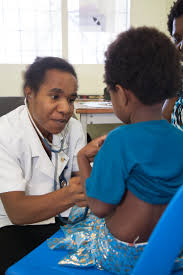
Some Toddler Health Concerns You Need To Know About
Toddlers have an immature immune system and they always seem to be catching something. While there are the usual parade of fevers, coughs, sniffles and colds, it’s important for parents to know when there might be something more serious afoot and what the telltale signs are. Of course, there’s never any harm in consulting a healthcare professional if you’re worried. No question or issue you have should be considered trivial where your child’s health is concerned.
Because toddlers tend to put everything in their mouths, they suffer from frequent bouts of vomiting and diarrhea. While it’s not unusual the diarrhea your toddler is suffering from doesn’t have a cause you need to worry about, you should get your doctor to rule out any viral infections like gastroenteritis if it persists. Often the problem just needs to be flushed out and offering her small amounts of clear fluid is just the thing until the situation passes.
Common Cold
There are many different things that can cause your toddler to vomit. While many of them aren’t serious and can even be the offshoot from something as common as a cold, the underlying illnesses could be as serious as meningitis. One of the clear indications you need to consult with a doctor is a weight loss in your child from being sick.
Finding out if cold-like symptoms are telltale signs of allergies that could possibly lead to asthma is also important. In some extreme cases, anaphylactic shock is the result of an extreme allergy, but clear, thin mucus that is not yellow or greenish and persistent is usually part of a lesser problem. If he’s constantly wiggling and pushing up his nose in what health care professionals call the allergic salute, your toddler’s issue is more than likely due to an allergy.
There’s a direct link to toddlers with allergies and asthma, but with the proper medical care, children with this inflammatory disease of the lungs and airways live an otherwise normal life. Some children who have allergic asthma can see their symptoms worsen with exposure to mold, pollen and even animal dander.
Itchy Blisters
Chickenpox is another health issue that affects toddlers by inflicting them with red, itchy blisters. Remember, this disease is contagious so you’ll need to keep her away from other children while the infection is active. Infected children generally don’t see symptoms for two to three weeks after initial contact, however swollen glands and feeling lethargic are early indicators your child may have the virus. The chickenpox vaccine is the best way to avoid this unpleasant childhood disease and you should take advantage of the immunizations that are offered at 18 months.
Urinary tract infections are more common in girls. These can leave your child feeling out-of-sorts with a mild fever and needing to use the bathroom frequently. Sometimes referred to as a bladder infection, these are caused by bacteria which infect the urethra and often the bladder as well. Oral antibiotics generally clear this issue up fairly quickly. Training your child to wipe from front to back is a good way to prevent future infections.
Read more info like this at All My Children.
Author: Rob Starr